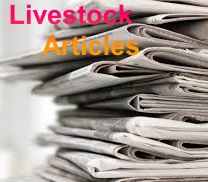Eskom Price Hike Set To Cost Farmers An Extra R1,27 Billion In 2025
Eskom price hike set to cost farmers an extra R1,27 billion in 2025
By Glenneis Kriel | 2 February 2025 | 7:00 pm
From 1 April this year, consumers will be paying more for electricity, thanks to the National Energy Regulator of South Africa (Nersa) recently granting Eskom permission to hike prices by 12,74%.
Eskom is set to hike electricity prices by more than 12% from 1 April. Photo: Piqsels
An increase of 5,36% was also approved for the 2026/27 financial year, and a 6,19% increase for the 2027/28 financial year.
While substantial, the hike is below the 36,5% requested by Eskom, but still above requests of stakeholders.
Themba Bukula, chairperson of Nersa, said in a statement that the decision struck a necessary balance between the needs of Eskom and the financial realities of consumers.
However, Theo de Jager, executive director of the Southern African Agri Initiative, said that the hike was a huge blow to irrigation, dairy, poultry, pig and fresh produce farmers.
“Farmers currently spend about R10 billion per year on electricity and will now have to fork out an additional R1,27 billion for which they did not budget. This will negatively affect farm margins, which are already under pressure, and, in effect, economic growth and job creation,” De Jager said.
He added that small- and medium-sized family farms would particularly struggle to weather the hike, as most did not have reserves to absorb more costs.
De Jager also said that unlike other industries that could increase their prices to accommodate rising costs, farmers were unable to do so and often absorbed a lot of these costs themselves.
Despite this, De Jager expected food prices to increase within one or two seasons following the increase.
De Jager added that the electricity hike was “just another government cost”. The hike, together with increases in the national minimum wage, toll fees, diesel and taxes, was affecting the international competitiveness of South African agricultural produce, he said.
“The problem is that South African farmers compete with farmers from countries where these costs are better managed. They are basically paying the price for mismanagement, looting and cadre deployment,” he said.

.jpg)






